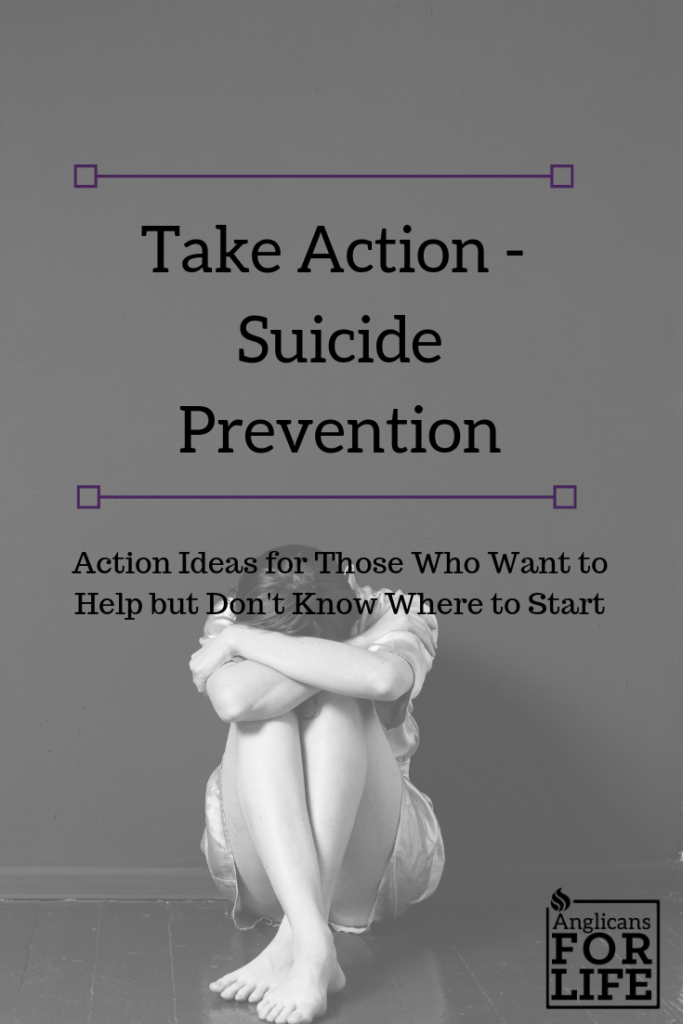
Each month we will offer a list of action ideas so you can defend, honor, and celebrate Life in your churches and communities on our Take Action page. This month, we are looking at suicide prevention.
“The Peace of the Lord be with you.” “And also with you.” I said that every Sunday for decades, and I’m sure many of you say this or something like it as well. It signals a time of greeting among the believers. It’s also a reminder that, as followers of Christ, the Peace of the Lord is with us always. But while all Christians are given this peace through the Holy Spirit, some of them struggle to feel it. While many Christians are talking about their joy and freedom in Christ, others are quietly despairing, wondering why they can’t just be happy like everyone else seems to be.
Too often the Church has failed to adequately respond to those living with depression. Too often Christians who have not contended with these feelings offer unhelpful suggestions: “You just need to trust God more.” “You aren’t praying enough.” “Why aren’t you grateful for God’s blessings?” So Christians who struggle with anxiety, depression, loneliness, and psychiatric disorders frequently suffer in secret, unsure how they, as “unhappy” Christians, fit into God’s Family. And when the peace of the Lord feels far away, suicide appears more and more like a way out of their pain and sorrow.
Suicide happens within the Church, and we know that because suicide is happening everywhere. Every day approximately 80 Americans take their own life, and 1,500 more attempt to do so. Suicide is now the third leading cause of death among those 15-24 years old and the 11th leading cause of death in the United States. While studies have shown that religious people tend to commit suicide less frequently than those who are not religious, this does not mean that the Church is exempt from this tragedy.
Church, we must talk about this. I know we don’t want to. It’s awkward and uncomfortable. Maybe you think that someone should be able to handle their problems on their own. But suicidal people need to be reminded that their lives are worth living and that God has not abandoned them. Know the signs. Notice if they seem more isolated or withdrawn. If they talk about ending their lives, don’t assume they are being overdramatic. Respond quickly if they do discuss ending their lives—determine if they have a plan, the means to carry it out, and the timeframe when they want to do so. Don’t be afraid to get professional help and reach out to your pastor. Be proactive rather than reactive.
Christians struggling with suicide ideation may not always feel the peace of the Lord. May we as the Church take action to remind them and to support them to choose life for themselves.
Action Ideas
- Invite a Christian counselor to talk during Sunday School or at an evening event about suicide prevention and the signs to be aware of.
- Post the National Suicide Prevention Lifeline on the church bulletin board or bulletin insert and always keep it in your wallet, purse, or phone.
- Organize a support group in your church to care for those struggling with depression or suicide ideation.
Resources
- National Suicide Prevention Lifeline – 1-800-273-8255
